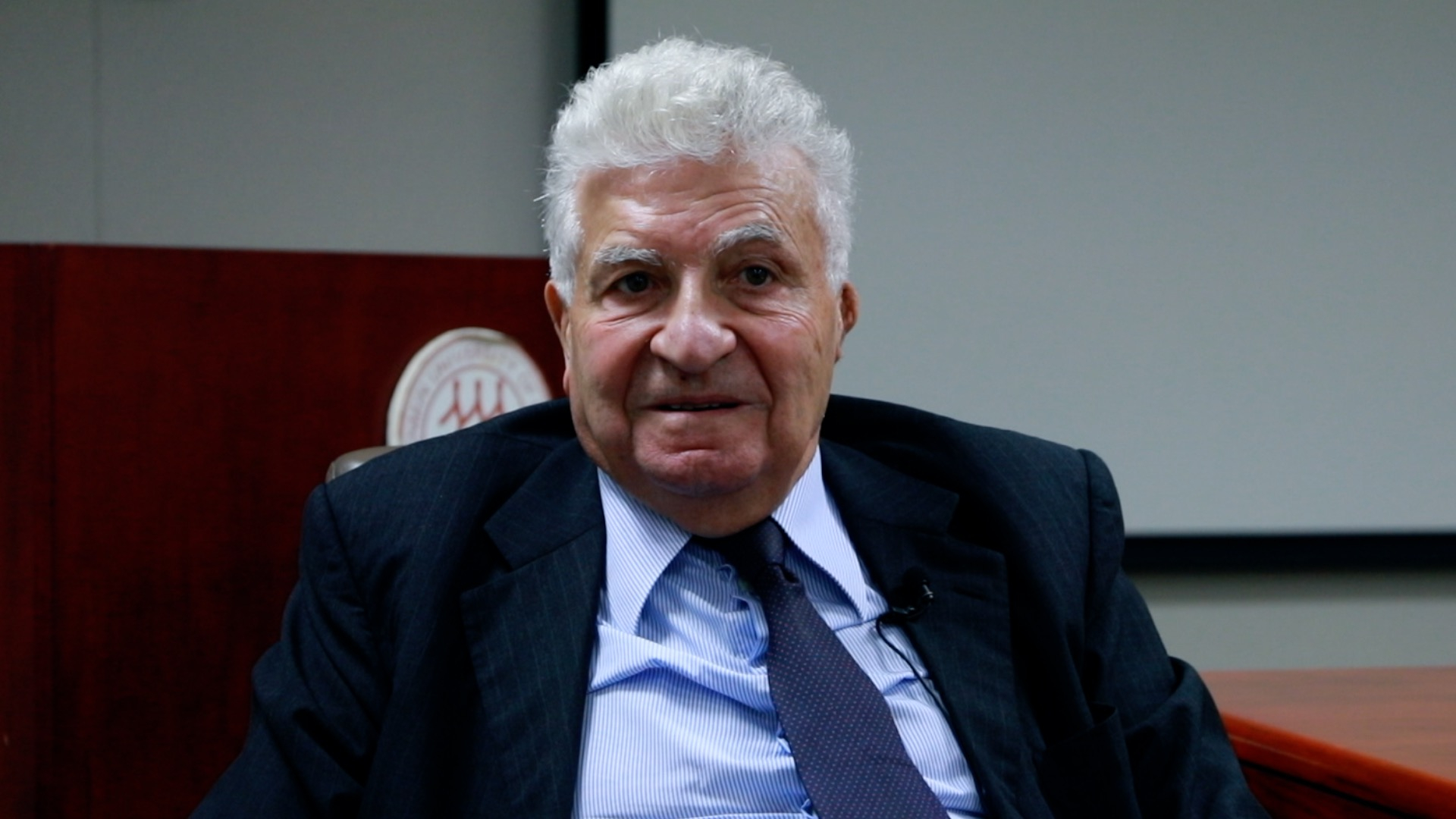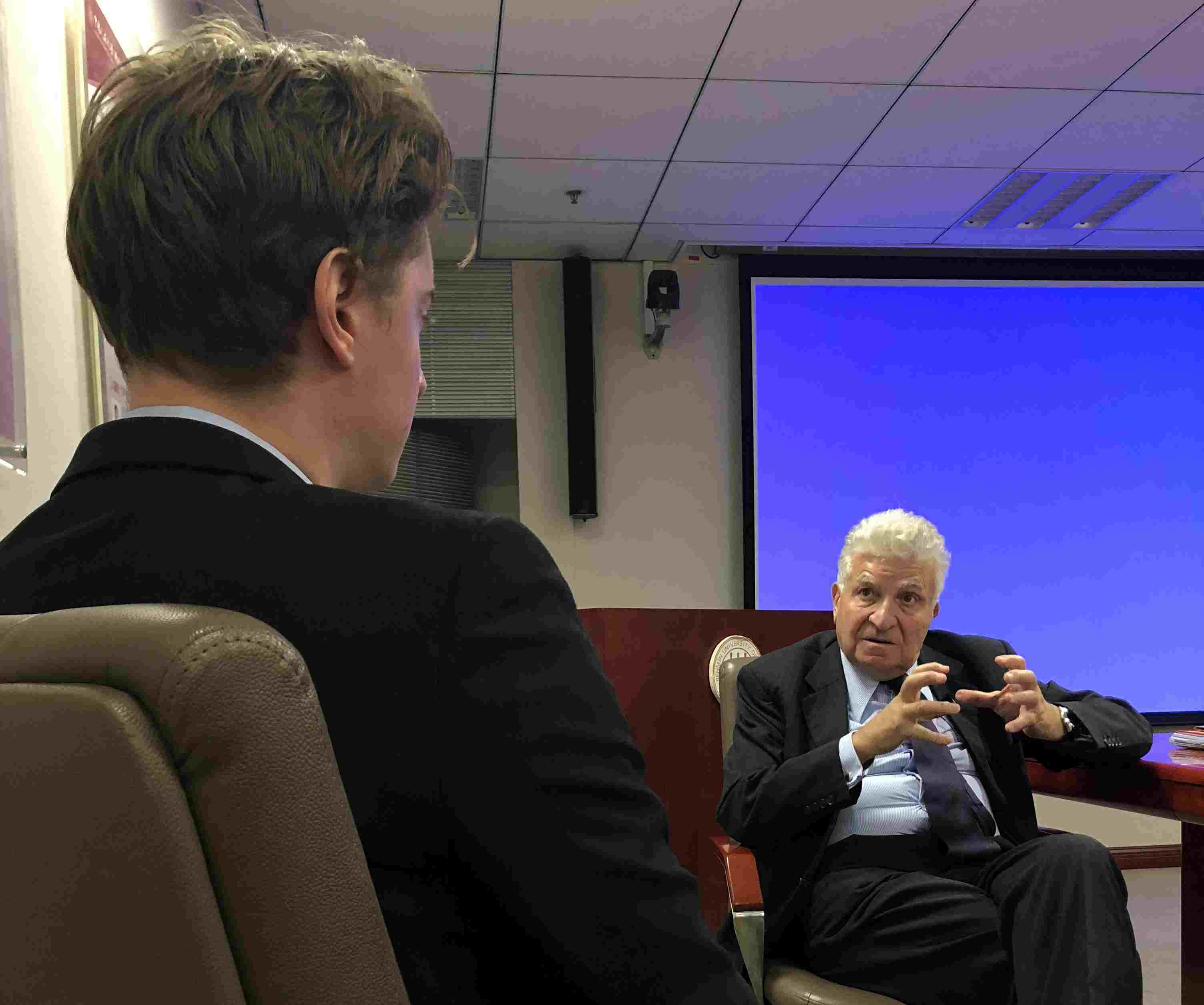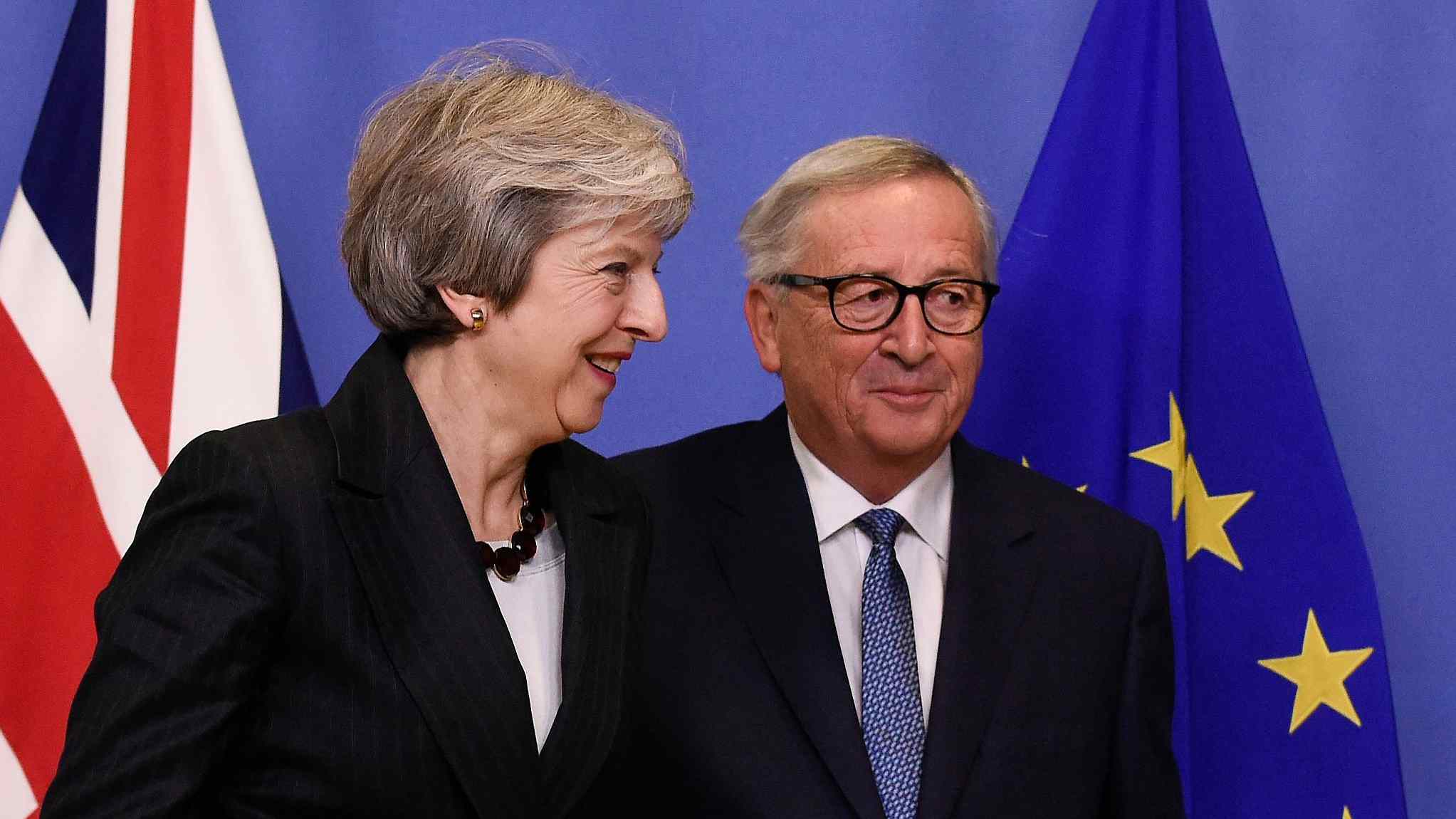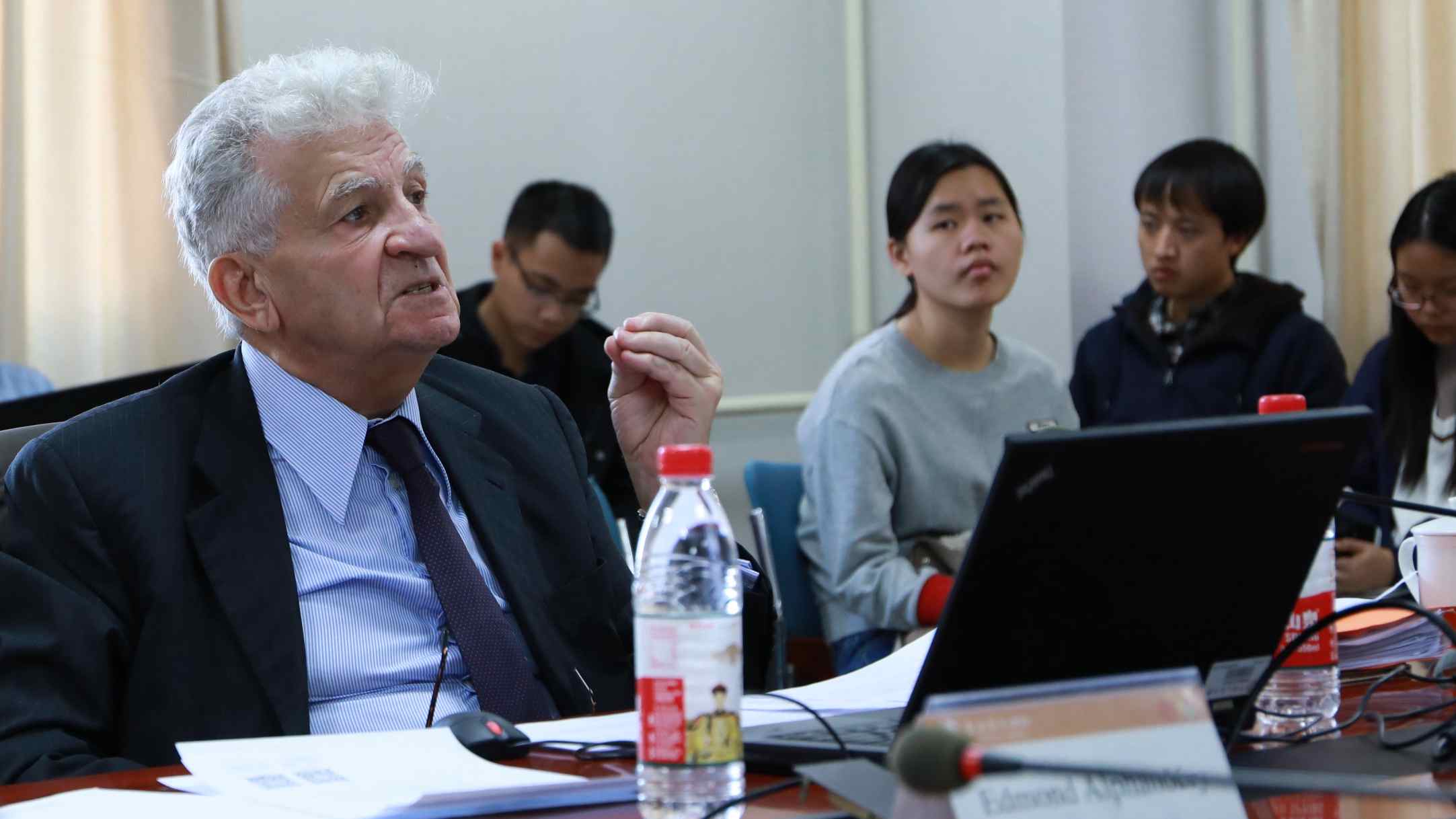
Politics
16:04, 22-Nov-2018
No deal Brexit 'very damaging,' former French minister warns
Updated
15:55, 25-Nov-2018
By John Goodrich
02:34

Former French economy minister Edmond Alphandery on Wednesday warned a no deal Brexit would be "very damaging" as disarray over Britain's exit from the European Union continued.
Speaking to CGTN at Renmin University's International Monetary Institute in Beijing, Alphandery backed a second referendum as the "best solution" if the deal currently on the table is derailed.
"A real no deal Brexit? It will be very damaging, no doubt about that. And I think that the more we approach the cliff, the more people will realize it is dangerous. This is the reason why I do not reject the idea of a new referendum."

Edmond Alphandery speaks to CGTN at Renmin University, Beijing, November 21, 2018. /CGTN Photo
Edmond Alphandery speaks to CGTN at Renmin University, Beijing, November 21, 2018. /CGTN Photo
The economist and politician spoke as discord in European capitals grew ahead of a critical EU summit scheduled for Sunday.
German Chancellor Angela Merkel cautioned that she would not attend unless negotiations – completed on a withdrawal agreement but ongoing over a political declaration on the future EU-UK trade relationship – were concluded ahead of Sunday, diplomatic sources told British media.
Merkel's warning came as Spanish Prime Minister Pedro Sanchez said he would not vote for the agreement if concessions were not made over the status of Gibraltar, the British territory on Spain's southern coast, in a future trade deal.
Spain is one of several EU members to voice disquiet, with France, Denmark, the Netherlands and Belgium reportedly calling for the terms of the political declaration – notably over fishing rights – to be left open to further negotiation at the leaders' summit.
A decision to delay or call off the summit could be hugely damaging to May, who is due to travel to Brussels on Saturday for last-minute talks.

EU Commission President Jean-Claude Juncker and British Prime Minister Theresa May at the EU Headquarters in Brussels, November 21, 2018. /VCG Photo
EU Commission President Jean-Claude Juncker and British Prime Minister Theresa May at the EU Headquarters in Brussels, November 21, 2018. /VCG Photo
Alphandery, the founder and chairman of the Euro 50 Group, said the withdrawal deal struck by Brussels and London was as good as could be expected in the circumstances.
"Theresa May has put on the table something that makes sense, at least, it makes sense. It's not the best solution, but in fact it is what could be done. I don't see anything else that could be better than that."
In Westminster, lobbying to win a majority to pass the deal in the UK parliament intensified on Wednesday ahead of a vote expected in early December.
The government needs 318 votes, but looks to have lost the confidence of ally the Democratic Unionist Party as well as at least 50 Conservative MPs.
Work and Pensions Secretary Amber Rudd argued in a BBC radio interview that parliament would prevent a "no deal" Brexit even if May's deal were rejected, going so far as to warn hardline members of her Conservative Party that by opposing the agreement they risked Britain staying in the EU.
The prime minister has taken a different tack, seeking to persuade wavering moderate MPs across the House of Commons that not backing her deal would increase the risk of no deal being agreed and Britain falling out of the bloc on World Trade Organization rules on March 29, 2019.

Edmond Alphandery gives the McKinnon Lecture at Renmin University, Beijing, November 21, 2018. /CGTN Photo
Edmond Alphandery gives the McKinnon Lecture at Renmin University, Beijing, November 21, 2018. /CGTN Photo
Uncertainty reigns over whether May will sway enough MPs to support her plan, but Alphandery argued that if she falls short a new referendum would be the best solution.
"Will she succeed? I'm not sure, I'm not sure at all. I'm afraid that she will fail. If she fails, what is the solution? My guess is that the best solution is to ask the people what they think about it. To go to the people, and say 'I cannot do it, now what is your position?'
"It is very democratic. And if the people say we want to leave, then everybody will know actually what will be the consequences, at least in the UK. The problem is that the UK has decided that, and it will damage the continent of Europe."
(Videographer: Song Jingyu)

SITEMAP
Copyright © 2018 CGTN. Beijing ICP prepared NO.16065310-3
Copyright © 2018 CGTN. Beijing ICP prepared NO.16065310-3